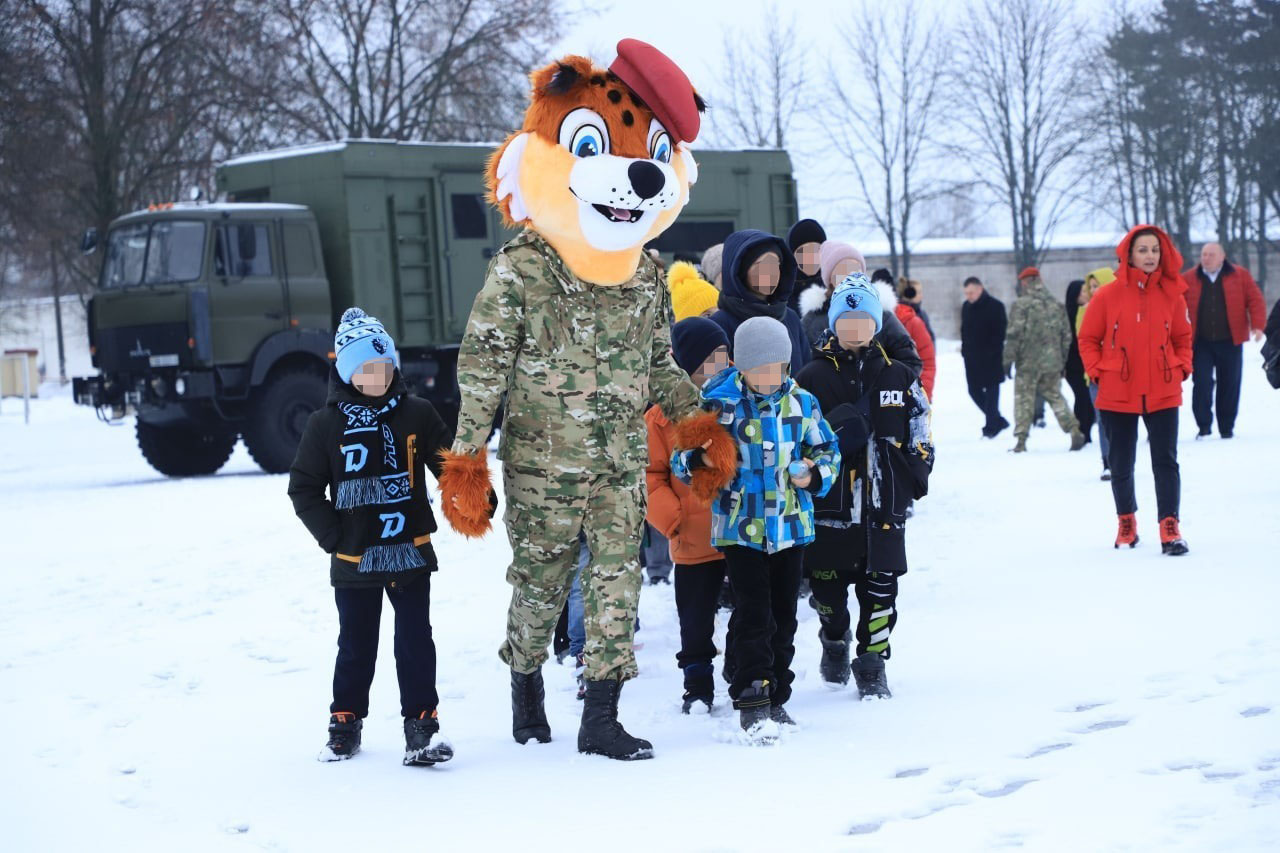Yale’s Humanitarian Research Lab finds Belarus complicit in the relocation of Ukrainian children
The report found that the Lukashenka regime of Belarus is assisting Russia in the relocation and re-education of thousands of Ukranian children.

Courtesy of Yale Humanitarian Research Lab
A recent report from the Humanitarian Research Lab at the Yale School of Public Health uncovered a joint effort between Russia and Belarus to forcibly relocate Ukrainian children, which the researchers allege violates both international humanitarian law and international human rights law.
Since Russia’s full-scale invasion of Ukraine, according to the report, at least 2,422 Ukrainian children between the ages of six and seventeen have been taken to 13 different facilities in Belarus.
“This report shows the Lukashenka regime of Belarus and Vladimir Putin’s government working together hand in hand to create a network for identifying, transporting, indoctrinating and in some cases, engaging in military training [of Ukrainian children],” Nathaniel Raymond, the executive director of HRL, told the News.
As part of the State Department-funded Conflict Observatory initiative, Raymond and the HRL first documented Russian efforts to relocate thousands of Ukrainian children in February, releasing a widely circulated report that found evidence of a network of 43 re-education and adoption facilities stretching from Crimea to Siberia.
Raymond emphasized that many of these Ukrainian children involved come from “very vulnerable contexts;” many are orphaned, disabled, from low-income families or have parents fighting in the war.
The researchers found that children were subject to pro-regime “re-education” in at least eight of the 13 facilities described in the report, including promotion of political, cultural and social messages that serve the political interests of Belarus and Russia.
According to David Simon, the assistant dean for graduate education at the Jackson School of Global Affairs, the deportation and re-education of Ukrainian children would likely be considered war crimes by the International Criminal Court.
“Clause 2(e) of the Genocide Convention stipulates that ‘the forcible transfer of children from one group to another’ is an act of genocide if undertaken with an intent to destroy a nation, racial, ethnic, or religious group in whole or in part,” Simon wrote in an email to the News. “The pairing of the program to relocate Ukrainian children from Ukraine to Russia and Belarus with programs to replace Ukrainian language with Russian (or Belarusian) language while ladling out heavy doses of the patriotic propaganda mandated by Belarusian law could be construed as precisely that.”
The report also found that at least six of the 13 facilities subjected the children to military training, and at least 67 children in total have been transported to hospitals for unknown medical treatments, which Belarusian officials refer to as “rehabilitation.”
The report details that Lukashenka has directly overseen Belarus’ efforts in relocating children by approving state and non-state organizations to transport Ukrainian children to Belarus, financing their relocation through the joint Russia-Belarus Union State budget and even visiting some of the children on multiple occasions.
Russia’s Investigative Committee and the Ministry of Education of the former Luhansk People’s Republic and Donetsk People’s Republic have helped to identify and target children to be sent to facilities in Belarus.
Besides government officials, Raymond said that there is also a “unique constellation” of individuals and regime-aligned organizations involved in the transportation and “re-education” of Ukrainian Children. Some of these include a Belarusian Republican Youth Union group, pro-Russia ultranationalist militant motorcycle clubs based in Belarus and a Donetsk-based organization called the “Dolphins” that provides swim lessons to disabled children.
The researchers primarily used open-source information to gather evidence, and they verified all their claims in accordance with ethical standards established by guidelines like the Berkeley Protocol on Digital Open Source Investigations. These measures included aggregating and cross-validating multiple sources of information to identify the number of children transported to each facility and the activities going on at the facilities.
In the process, the Humanitarian Research Lab team primarily used statements and documentation directly from the Russia and the Belarusian Lukashenka regimes. They also relied on social media posts from those who were directly affected by the re-education and transport, including children and their parents.
For Raymond, social media has been a crucial source of information since the Russia-Ukraine war began.
“Since we started monitoring the war in Ukraine in late winter or spring of last year, we have seen the amount of social media from individuals and from state organizations engage in violations of international law,” Raymond said. “We have seen the volume of social media produced from them about their acts on a level that we have never seen in any other conflict … The primary source of confirmation has been the statements, photos and posts of the perpetrators themselves.”
Raymond noted that opposition groups in Belarus have delivered evidence related to this case to the International Criminal Court. Additionally, Sviatlana Tsikhanouskaya, the exiled opposition leader of Belarus, has called for an international court indictment against Lukashenka.
In an email to the News, Daria Valska ’26, the current president of Ukraine House at Yale, said the report of Belarus’ involvement was “sickening.”
“On behalf of Ukraine House at Yale, I thank Yale HRL for shedding light on Belarus’ and Russia’s illegal deportations and all other work they do for my country…” Valska wrote. “This report shows just a part of the systematically-imposed terror Ukrainians from occupied territories suffer from. People at Yale and beyond should understand that the only way to end the genocide Russia commits is to help Ukraine win the war and regain sovereignty over all of its territory.”
On Nov. 16, the U.S. Department of State published a press release on the report, affirming that the United States will “continue to pursue accountability for actors involved in abuses connected with Russia’s war against Ukraine.”
The Conflict Observatory program was announced by the State Department on May 17, 2022.







